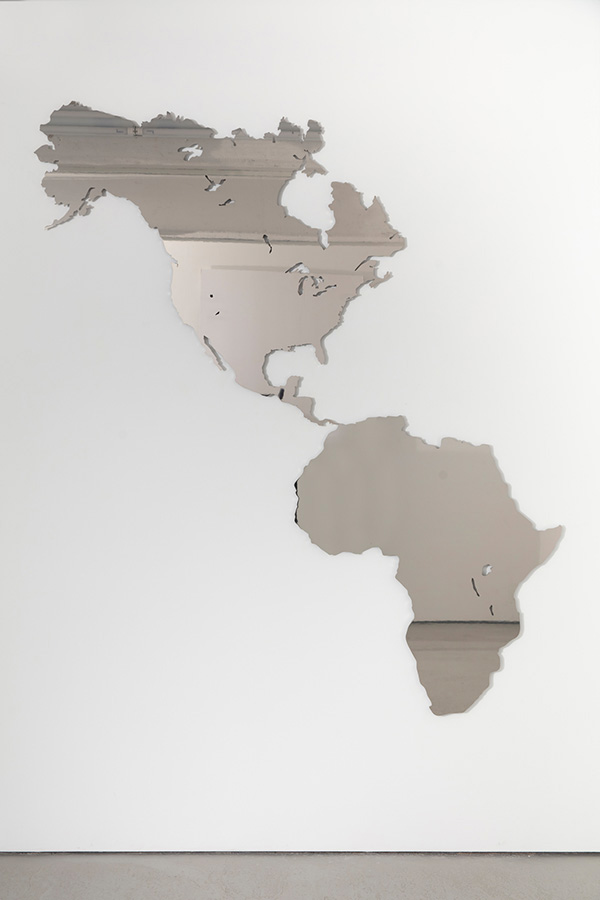Audio Stop 951

stainless steel with mirrored finish
National Gallery of Art, Washington, Firestone Contemporary Art Acquisition Fund
Hank Willis Thomas
A Place to Call Home (Africa America Reflection), 2020
Read full audio transcript
NARRATOR:
American-born artist Hank Willis Thomas is interested in points of view – how someone’s experiences and background influence their perception of the world – but also, literally, how one’s position in relationship to an object alters the way they see it.
HANK WILLIS THOMAS:
I’ve always been interested in the way that how where we’re standing affects what we see. And we look at history and images and stories that we’re told or we read in books, as the objective truth, whereas they’re all interpretations. And so I like to add that element to the work.
I’ve been working with polished stainless-steel, which is highly reflective and has this mirror element, for a long time. I’ve also been working with mirrors as a medium, because there is something beautiful from a phenomenological perspective, when the viewer also becomes the subject of the work. So when I’m standing in front of A Place To Call Home, I’m also standing in front of myself. I’m confronting the
artwork while also confronting an image of myself, or my reflection, to be specific.
NARRATOR:
In this wall sculpture, Thomas presents a map that at first feels very familiar. On top are the contours of North America, but rather than connecting it to South America, he has inserted a map of Africa below.
HANK WILLIS THOMAS:
I still have not been able to reconcile what it means to look at my own reflection. And whether my reflection is depicted in a shape, and in this case the shape being North America where my ancestors were brought to as slaves. And another part of that reflection being the continent of Africa, where many of my ancestors were captured and sold into slavery.
A Place To Call Home is really about this sense that a lot of us don’t feel at home in the United States. And when we go to the continent of Africa, there isn’t a place that we could call specifically home. And so I imagined a place to call home, which would be a new combination of continents, Africa-America.